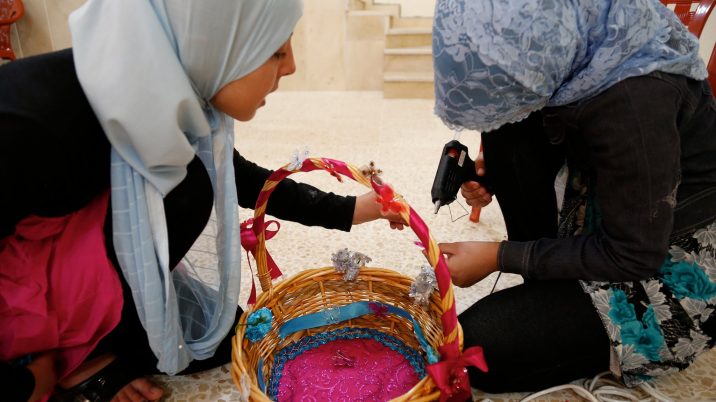Gender and social inclusion
We design gender-sensitive and inclusive monitoring systems which include scope for understanding value for money and cost-effectiveness and work to implement monitoring and evaluation approaches that unpack discriminatory social and gender norms.
Use the filters below to explore our work in gender and social inclusion.
Filter content:

Strengthening the enabling environment for young women’s empowerment in Nigeria: Achievements and learning from Voices for Change
Voices for Change (V4C) was an innovative programme aiming to work at scale to strengthen the enabling environment for young...
Issues and challenges of assessing the benefits of capacity development – experiences from the M4D programme in northern Nigeria
It is often argued that good governance is possible only when governing institutions perform to certain standards and that...

David Walker
David Walker is a gender and social development consultant, who specialises in violence against women and girls and child...
Shining a light on Violence against Women and Girls programming…the need for evaluation
In September 2017, we attended the launch of the Spotlight Initiative, an EU and UN multi-year initiative to eliminate...
What works for social accountability? Findings from DFID’s macro evaluation
I wrote my first blog on DFID’s macro evaluation of its empowerment and accountability project portfolio way back in 2015,...
Measuring Social Norms on WEE Programmes: Lessons from Itad’s Work in Gender Equality
The role of social norms change in economically empowering women was a hot topic at the SEEP Women’s Economic Empowerment...
Itad’s 4 top takeaways from the SEEP Women’s Economic Empowerment Forum
Mollie Liesner blogs on her top 4 takeaways from the SEEP Women's Economic Empowerment Forum in Bangkok.
60 seconds with…Richard Burge
Our ‘60 Seconds with…’ blogs are designed to provide a quick run down of what our staff do here at Itad. Here is what...

Mary Lagaay
Mary Lagaay is a Principal Consultant at Itad with over eight years’ experience in research, monitoring and evaluation.

Impact Evaluation of the Samarth Market Development Programme in Nepal
Despite economic growth, remittances from abroad and significant donor support, poverty and inequality remain high in Nepal,...

External assessment of value for money, sustainability and coordination of DFID’s funding to the UNFPA-UNICEF Joint Programme to end FGM
External assessment of value for money, sustainability and coordination of DFID’s funding to the UNFPA-UNICEF Joint...

Evaluation of UNFPA Support to the Prevention, Response to and Elimination of Gender-based Violence, including Harmful Practices
The issue of violence against women and girls features strongly in the 2030 Development Agenda. We are committed to supporting...

Empowerment and Accountability Annual Technical Report 2016 – Annexes Volume 1: Framing documents
The Department for International Development (DFID) commissioned Itad, through the e-Pact consortium, to undertake a macro...

Empowerment and Accountability Annual Technical Report 2016: What Works for Social Accountability
The Department for International Development (DFID) commissioned Itad, through the e-Pact consortium, to undertake a macro...

Empowerment and Accountability Annual Technical Report 2016 – Annexes Volume 2: Case Studies
The Department for International Development (DFID) commissioned Itad, through the e-Pact consortium, to undertake a macro...

Year 3 Evaluation of Pacific Women Shaping Pacific Development
Pacific Women Shaping Pacific Development (‘Pacific Women’) aimed to improve the political, social and economic...

